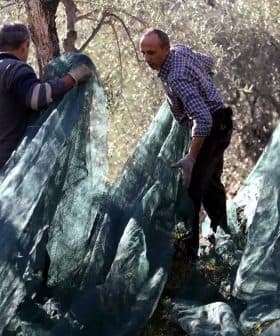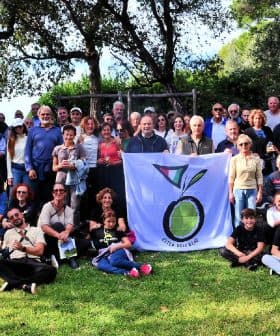France Unlikely to Eradicate Xylella, Report Finds
A report from the European Commission indicates that Xylella fastidiosa is unlikely to be fully eradicated in France due to delays and missteps by local authorities, with the bacterium infecting olive trees in the most productive regions of the country. The auditors found that delays in destroying infected plants, lack of coordinated efforts to control insect vectors, and failure to comply with European regulations on plant movement all raised doubts about the successful eradication of Xylella fastidiosa in mainland France.
Xylella fastidiosa is unlikely to be entirely eradicated in France after delays and missteps by local authorities, according to a newly-published report from the European Commission.
The bacterium, particular subspecies of which cause the deadly Olive Quick Decline Syndrome, was first discovered in French territory on the Mediterranean island of Corsica in July 2015.
Separate outbreaks were later detected in Provence-Alpes-Côte d’Azur in October 2015 and Occitanie in September 2020.
See Also:Xylella Fastidiosa Containment Protocol Proves Effective in PugliaIn the three regions, which are also the most productive olive-growing areas of the country, the auditors identified two subspecies of Xylella fastidiosa – multiplex and pauca – that infect olive trees.
However, olive trees infected by Xylella fastidiosa were only identified in Provence-Alpes-Côte d’Azur and destroyed following European eradication protocols.
These stipulate that any of the 300 identified host species within a 50-meter radius of the infected plant – known as an infection zone – are destroyed.
A larger buffer zone with a 2.5 to 5‑kilometer radius (based on the extent of infections in the infected zones and the ability of the bacterium to spread) is then set up, and all susceptible plant species must be tested. Combined, these are known as a demarcated area.
European Commission auditors found that French authorities did not consider all the relevant factors of how Xylella fastidiosa is spread by human and natural causes. As a result, the authorities’ surveys may have allowed the disease to spread outside of the buffer zone undetected.
The auditors also found that a lack of detailed provisions meant no immediate plan was in place to destroy infected plants. This resulted in significant delays that created a risk for the further spread of the disease.
However, the auditors acknowledged that French authorities set up demarcated areas in a timely manner on the mainland, which prevented Xylella fastidiosa from spreading as it has in Corsica. The entire island is now considered an infected zone, but not by the subspecies that infects olive trees.
See Also:Xylella Arrived in Italy from a Costa Rican Coffee Plant, Researchers SayIn Provence-Alpes-Côte d’Azur, where two infected olive trees were identified, the auditors said authorities successfully established the demarcated area in time, preventing the spread of the disease from the two ornamental olive trees to others in the zone.
While French authorities quickly set up demarcated areas and conducted thorough testing to identify infected plants, the auditors found that eradication of these plants and others in the infected zones was delayed by up to five months.
These delays were attributed to a prolonged tendering period, in which contracts are awarded to private companies to eradicate infected plants, movement restrictions put in place during the Covid-19 pandemic and the right of property owners to appeal test results.
The auditors said delays in removing infected plants and the lack of a coordinated effort to identify and control insect vector populations “raised serious doubts” that Xylella fastidiosa could be eradicated in mainland France.
On Corsica, the auditors said authorities failed to comply with European regulations restricting the movement of infected plants. While they acknowledged adequate controls at ports, they said no controls were placed on boats leaving with susceptible plant species to Spain or Italy.
On the mainland, the auditors said authorities did not set up adequate infrastructure to check plant movements on roads or ports, meaning potentially infected plants may have been transported to other parts of France, Spain and Italy.
However, the auditors said that local and national authorities had done well to inform the public about the threat of Xylella fastidiosa, which may have helped prevent the spread to further agricultural areas.
The auditors concluded the report with six recommendations for authorities to take to remedy the issues they identified.









